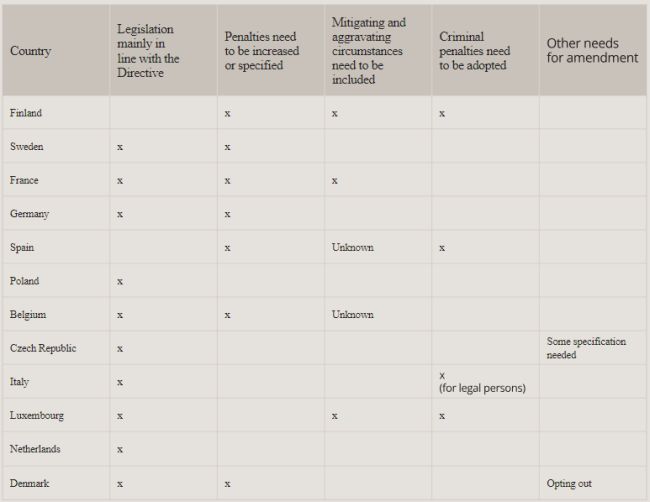- within Intellectual Property topic(s)
- with readers working within the Healthcare industries
In April, the European Parliament and Council adopted a Directive on sanctions violations. The Directive aims to harmonise the definitions of criminal offences and penalties related to violating EU sanctions. The purpose is to ensure that violating sanctions is a punishable offence in all Member States and that the penal provisions are at least equivalent to the minimum level set for them.
The European Commission has noted significant variation between Member States in how they define what constitutes a violation of sanctions and what the penalties are for these violations. According to the Commission, these offences are not investigated and prosecuted with sufficient efficiency. The goal of the Directive is to ensure that all Member States can speak as one in matters related to sanctions, which became particularly topical after Russia launched its military attack on Ukraine.
Harmonising definitions and penalties across EU countries also facilitates the operations of multinational companies. Additionally, the new Directive makes cooperation easier and harmonises practices with those of the United States, where it is currently possible to impose a fine or a maximum of 20 years in prison for violating sanctions.
The Directive causes amendments to the Criminal Code of Finland
Due to the Directive, new offences will be added to the Criminal Code of Finland: sanctions offence, aggravated sanctions offence, negligent sanctions offence and sanctions violation. Member States must impose effective, proportionate and dissuasive criminal penalties and imprisonment must be included in the maximum penalty imposed for intentional violations. Furthermore, legal persons should be held liable for violating sanctions. The Directive determines the minimum and maximum amount for fines imposed on legal persons. In Finland, corporate criminal liability would be applied to sanctions offences, aggravated sanctions offences and negligent sanctions offences. For these offences, the maximum amount of corporate fine would be 5 per cent of the legal person's turnover but no less than EUR 850,000 or more than EUR 40 million, which derogates from the general maximum amount of corporate fine.
Finland has taken a positive view of the objectives of the Directive and the Ministry of Justice of Finland has appointed a committee to assess and prepare the required legislative amendments. The proposed legislation is intended to enter into force in May 2025, at which time the Directive must be implemented at the latest.
The Directive increases penalties in many Member States
How does the new Directive impact the legislation of Member States? Does the level of national legislation already correspond to the Directive's requirements or must countries make amendments?
In the countries we examined, legislation is mainly already in line with the Directive, but nearly all of the countries must make some kind of amendments. The most common needs for amendments concern increasing or specifying penalties as well as including mitigating and aggravating circumstances in legislation. In some countries, for example Italy and Luxembourg, sanctions laws are very new and therefore mainly in line with the new Directive. In some other countries, like Spain, regulation is fragmented and requires more amendments. Denmark has stated that it takes a positive view of the Directive but has nevertheless decided to opt out of applying it. Legislation in Denmark is currently mainly in line with the Directive, although penalties are not as severe.

The Directive reinforces the overall impact of sanctions
The Directive on sanctions offences is an important step towards a more unified and effective implementation of EU sanctions. By harmonising the definitions of offences and penalties the EU aims to ensure that sanctions violations are investigated and prosecuted more effectively, which will reinforce the overall impact of sanctions. Our experts will be happy to assist you if you have any questions about implementing sanctions or the Directive's impacts.
The content of this article is intended to provide a general guide to the subject matter. Specialist advice should be sought about your specific circumstances.



